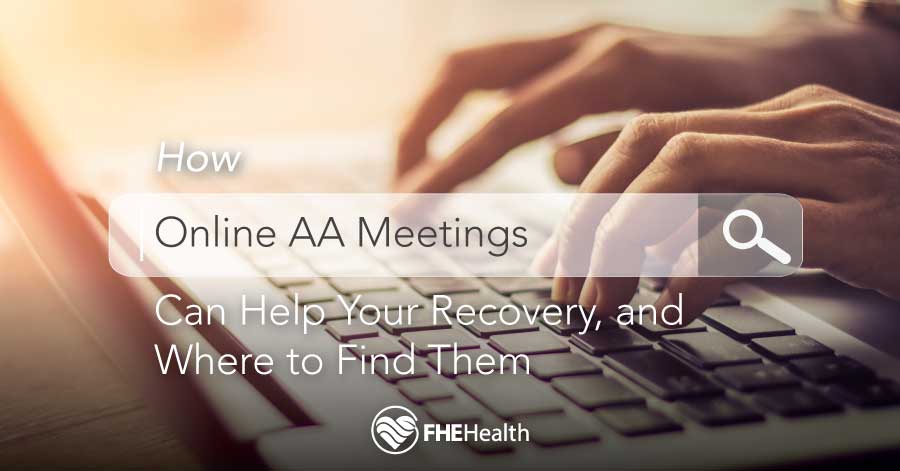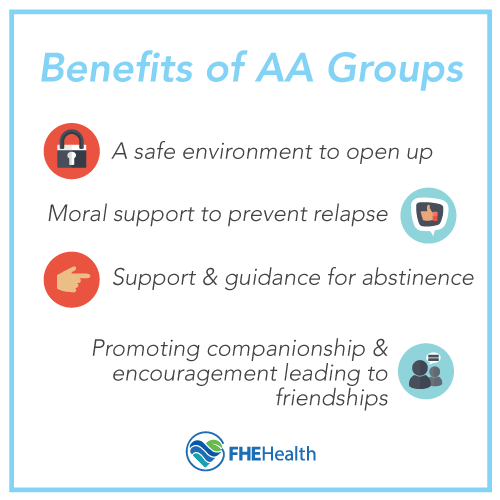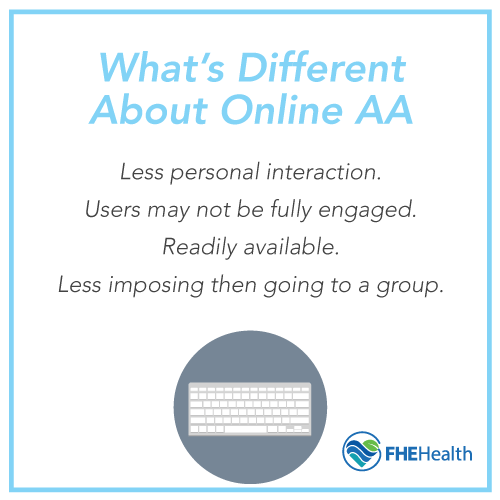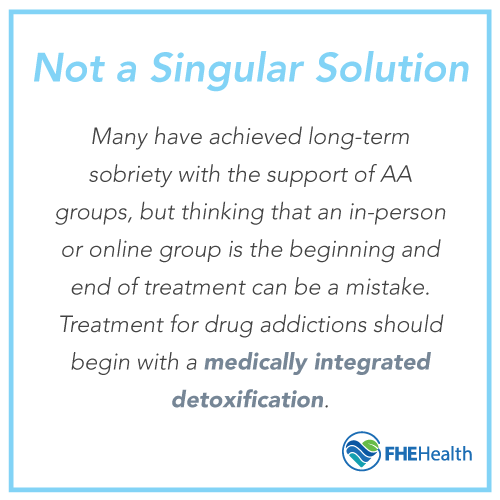
Alcoholics Anonymous is one of the many tools available to individuals recovering from substance abuse. It provides an opportunity to interact with others who are experiencing the same thing you are, right in the trenches with you. AA is a large organization, with more than 115,000 groups around the world. It’s been shown to be a successful tool for those working on themselves in recovery. The organization claims up to 75 percent of its members abstain from use, though it doesn’t track these numbers due to the anonymity expected here.
As effective as it is, many people want the easiest option possible for getting care. That’s why so many online AA meetings are now available. Are they safe? Are they the best option for you as you work on your recovery?
Suggested Resources
These meetings are a sample of what is available, but this is not a complete list of peer support groups for those struggling with mental health and use disorders. There may be local meetings in your area that are not so widely known. Reach out to peer-based support services, local advocacy groups and recovery community organizations for additional options in your area. There are also virtual options that cater to like-minded individuals that can be found through internet and social media searches. We have no affiliation with these resources, nor do we formally endorse them.
12 Step based Recovery Support:
Secular Support (non-religious)
Buddhist based support- nontheistic.
Christian based support:
Fitness-based Recovery Support
Mental Health/Use Disorders Recovery Support
Mental Health Recovery Support:
Family/Loved Ones Support – For loved ones with Mental Health Disorders and/or Use Disorders
What Do AA Groups Provide?
 Traditional AA groups involve anywhere from several people to large groups (depending on the format) coming together in privacy to talk about their experiences, thoughts and struggles as they abstain from using alcohol. Going to an in-person meeting offers many benefits, including personal interaction with people who understand exactly how you feel. It also creates opportunities for you to develop confidence in yourself as you share openly.
Traditional AA groups involve anywhere from several people to large groups (depending on the format) coming together in privacy to talk about their experiences, thoughts and struggles as they abstain from using alcohol. Going to an in-person meeting offers many benefits, including personal interaction with people who understand exactly how you feel. It also creates opportunities for you to develop confidence in yourself as you share openly.
These groups provide several key benefits including:
- A safe space to share your thoughts
- Privacy in opening up about what you are going through
- An immediate helping hand to encourage you to not drink
- Support for dealing with life after abstaining, such as finding a job and handling personal relationships
- A way to experience strength, encouragement and companionship, many times leading to true friendships
These meetings allow you to share as much or as little as you need. They are meant to be comfortable but also encouraging. Led by a recovering alcoholic or a therapist, they generally center around the 12-step program, aiming to help people continue to work on their recovery.
 Online meetings are a bit different in terms of what they can offer to you. They still provide the openness and communication you may need, but they lack any of the physical aspects, such as getting a hug from someone who understands what you are facing. There’s sometimes also a loss of local focus, depending on where the group is located. This may limit the opportunities for you to share resources and support available within the local community.
Online meetings are a bit different in terms of what they can offer to you. They still provide the openness and communication you may need, but they lack any of the physical aspects, such as getting a hug from someone who understands what you are facing. There’s sometimes also a loss of local focus, depending on where the group is located. This may limit the opportunities for you to share resources and support available within the local community. The most important thing to understand about online AA meetings or any type of AA meeting is that it is not a solution to addiction. Every person benefits from seeking out a licensed professional who can help you thoroughly understand your addiction to alcohol. This includes providing you with helpful tools and resources to stop drinking. These professionals work closely with you to address your physical dependency and other health matters.
The most important thing to understand about online AA meetings or any type of AA meeting is that it is not a solution to addiction. Every person benefits from seeking out a licensed professional who can help you thoroughly understand your addiction to alcohol. This includes providing you with helpful tools and resources to stop drinking. These professionals work closely with you to address your physical dependency and other health matters.








